Prediction: Big City Blues will eventually find itself featured in one of the Warner Archive’s Forbidden Hollywood Collections. It’s just too much fun with too much cast not to. Until that time I’m sorry to say that it is yet another tough find that you’re probably going to have to wait on Turner Classic Movies to air if you don’t already own a copy.
Directed by Mervyn LeRoy this lively 63-minute bit of pre-Code fun pairs nicely with his next film at Warner’s, the better known Three on a Match. Despite a murder so graphic that you can see the blood ooze from the victim’s head, Big City Blues is the far lighter offering of the pair.
Eric Linden stars as Bud Reeves, a super-naive native of Hoopersville, Indiana, Tippecanoe County, U.S.A., who hankers for the big city the title is referencing: New York. While he misses the number 18 train, which according to Grant Mitchell’s station agent, “ain’t picked up a passenger in a week,” it’s only a half an hour until the number 26 is scheduled to roll through.
During this wait Grant Mitchell gets to have some fun as the station agent, uncharacteristically chewing the scenery while doing his best to warn the youngster about his own big city experience from twenty-five years earlier. When Bud makes the assumption that the older man hadn’t stuck around New York long enough to give it a fair shake, Mitchell rattles off a list of New York experience that speaks otherwise:
I was a telegraph operator and a process server; I was a part time lifeguard at Rockaway Beach; I worked on the BMT and drove a taxi. I was a rubber in the Turkish bath; had a job on the day shift in the hymn book factory, on the night shift in a Bowery flophouse.” He chuckles. “A job they handed me to let me work out my rent. I drew wages in a hash house and a Chink laundry and a pet shop. For a week I sorted stiffs in the morgue and for a month worked on a coal barge. I delivered gin for a drug store in Astoria and had my own ice business in the Bronx. I met tramps and bootleggers and bishops and reporters and gunmen and borough presidents and you, you come a-tellin’ me I didn’t get to know New York.
Bud is undeterred. The number 26 arrives and he’s off. We’re six and a half minutes into this baby!
After Linden wanders, mouth agape, through a montage of New York backdrops he checks in to his spacious $8-a-day room on the 36th floor of the Hotel Hercules. The general tone of Big City Blues establishes itself as soon as Walter Catlett enters as Bud’s slick-talking deadbeat cousin Gibboney. Gibby to his friends. Once Catlett starts rattling off his rapid fire dialogue it feels like Big City Blues never slows down!
Gibboney claims to know Constance Bennett and Mayor Jimmy Walker (what big shot didn’t?), and when Bud asks whether or not he’s in the theatrical business, ole Gibby gives him a semi-honest reply: “Well, no not exactly in it, but it’s about the same thing, I’m with the Northern Lighting Company, you know, theatrical fixtures and all that sort of stuff. You know show business couldn’t get along without us.” He says it so fast that Bud isn’t supposed to hear any of the parts contrary to his original presumption.
Gibby takes Bud down to the lobby on the pretense of meeting some showgirls—the big surprise is that he actually comes through with the girls. Bud is awestruck by Joan Blondell’s Vida from the first moment he sees her pass, with her friend Faun (Inez Courtney), on her way to the ladies room.
“Do you ladies live in this hotel?” Bud asks after they return and Gibby introduces them.
“No, just wash here,” Blondell deadpans.
Gibby suggests he and Bud take in Vida and Faun’s show and then they all come back to the Hercules for a party in Bud’s room. Gibby’s paying for everything, except, “Here’s a hitch, a little old fashioned hitch. I’m afraid I’ll have to get a check cashed.” Gibby’s wallet is eternally empty. Bud, meanwhile, carries the entirety of an $1,100 inheritance in his pocket. Gibby makes the first of several promises to cash a check later in exchange for some of Bud’s cash, now.
Faun puts the touch on Gibby for car fare and Gibby, of course, turns to Bud because he doesn’t carry any small bills. “Oh girls, look at that roll,” says Gibby, excited when Bud pulls out his money. “Looks like a head of lettuce.”
“Gosh, you sure do know the nicest people,” Bud gushes after meeting the girls and falling in love at first sight with Blondell’s Vida.
While the fellows are off at the show we receive the first of a few unbilled casting surprises back in Bud’s hotel room, where the team of Herman Bing and Torben Meyer provide room service. Sitting nearby and engaging the accented pair in a bit of conversation is J. Carol Naish as Gibby’s impatient bootlegger.
Bud and Gibby return and host Gibby pays for the booze with more of cousin Bud’s money. Gibby even tips a dollar to lighten J. Carol’s mood. “Almost forgot,” the bootlegger says to Gibby. “The boss said you were having ladies over so we put labels on the bottles.” He shows them off proudly. Naish moves towards the door before catching himself and turning once more. He gives Gibby a business card and lets him know that they’re moving, yet again.
The bell soon rings and Vida and Faun return, leading a pack of guests from the theater. There’s a globetrotter named Stackhouse who doesn’t do much but is played by fourth billed Ned Sparks, underused here despite expectations based on those opening credits. Josephine Dunn is either plastered on booze or high on something stronger as tweaked out Broadway star Jackie Devoe, and hey, there’s Evalyn Knapp acting meek while curled up in a corner reading Radclyffe Hall’s The Well of Loneliness, a controversial lesbian novel published a few years earlier. Lyle Talbot plays the star of the show and he is already drunk upon arrival and, lo and behold, Humphrey Bogart is on hand as the assistant treasurer of the theater! Bogie is sharp-tongued and sober.
And now it’s a party! Bootleg hooch swilled by all with more electricity passing between Bud and Vida off in a corner. The radio interrupts with a pitch for Yum Yum popcorn, but it wasn’t until after I visited the IMDb that I realized the voice on the radio belonged to Dick Powell. Lorna St. Clair arrives late and Sheila Terry gets to draw some attention to herself with a pretty good little entrance speech in the part. She inspires the entire crowd to check out another party going on a few floors down inside the Hercules.
“Come on, Vida, come on, we’re all gonna get drunk,” says hyped up Faun helping to hustle Blondell and Linden out the door with the rest of them.
Bud and Vida hang back from the others to chat in the stairwell while Guy Kibbee’s hotel dick, Hummell, begins to make his presence better known. He slips past the lovebirds into the laundry closet for a sip of his own hidden hooch. When the gang returns to Bud’s room from the other party Hummell stops by to tell them to quiet down and is rewarded with a bottle of champagne, courtesy of Gibby, who invites him to come back for more once he’s done with that. Back at the party Bogie is putting the make on Jackie Devoe, who I should remind you is totally lit, and Talbot begins to take exception to Bogart’s familiarity with Devoe’s bare back.
There’s a fight. Then that bloody corpse. Everyone runs out on Bud, including Vida. Bud takes flight himself while Vida has second thoughts and returns to the darkened room. Kibbee’s Hummell comes back hoping that offer of a refill still stands. Vida hides behind the door when he enters, but Hummell sees just enough of her back when she emerges to make her break.
The party is definitely over.
While Big City Blues intends to take a more serious turn in response to the accidental death it has excited us with so much atmosphere and, retrospectively, so many familiar faces, that we’re still having fun despite what any of the characters may be feeling. Thomas E. Jackson shows up as homicide detective Quelkin and he plays the part so stiff and laconic that he may as well still be the same lead detective he played for LeRoy the year before in Little Caesar.
Small town Bud feels as if all eyes are upon him and Jackson’s detective somehow catches on to Blondell’s Vida despite Kibbee’s extremely vague description. Bud winds up buying Jobyna Howland’s socialite a drink in a dingy speakie and Howland plays it with enough class that her offer to the much younger Linden to come up and see her some time doesn’t sound like the pick-up the screenwriters surely intended it to be.
When the older woman whisks Bud off to the 55 Club, where he hopes to find Vida again, we’re treated to another surprise when the focus is placed on Clarence Muse. Muse isn’t working the door or the restroom. He doesn’t even have any lines, but instead looks to be getting a big kick out of providing the entertainment in the otherwise all-white club where he sings Jolson’s “Ev’ry Day Can’t Be a Sunday.”
Like Three on a Match every scene in Big City Blues plays like a cherry on top of what came before. By the time they find each other again Linden and Blondell are as frenzied by fear of being caught as they are thrilled to have an excuse to cling to one another. She is now, “Vida, darling,” to him and he, “Bud, dear,” in response.
“I want to stay where there’s noise and excitement and crowds,” Vida says. The manic pair move upstairs to shoot dice and rattle off a lot of gambling lingo from the head of a crowded gaming table that like everything else now seems to pit the world against the young lovers. Busted, their energy as spent as Bud’s money, the duo are stopped a few steps from the table by Detective Quelkin.
“All through here?” Quelkin asks.
“Yeah, they took it all,” says Bud.
“That’s tough. You ready?”
“Ready?” asks Bud. “Who are you?”
“I’m from the homicide squad.”
Quelkin brings them in with threats of the “hot seat,” while Vida and Bud damage themselves in defense of the other. The police bring in the other party-goers and Bogart tosses off his best line when he leans towards disconsolate Bud, smirks like the smart aleck he is, and says, “Meant to ask you Mr. Reeves, now how do you like New York?”
Humphrey Bogart was still nobody special at the time of Big City Blues. Bogart had previously spent 16 months in Hollywood under contract to Fox Films, during which time his most memorable titles were his feature debut, Up the River (1930), starring Spencer Tracy and supporting Bette Davis in The Bad Sister (1931). Uninspired by his assignments at Fox, Bogart returned to Broadway. Columbia soon lured him back to Hollywood with a six-month contract and a romantic lead opposite Dorothy Mackaill in Love Affair (1932). It was during this second Hollywood run that he was loaned to Warner Brothers for Big City Blues followed by Three on a Match, also from director Mervyn Leroy. While Bogie is impressive in Three on a Match the Warner loan outs were small parts with low or no billing and Bogart was soon back on Broadway. That face would have to weather a little more before it found stardom.
 Warner Brothers had bought the rights to Ward Morehouse’s unproduced play, New York Town, for $25,000 in February 1932. As Big City Blues it was released in September that year and seems to have come and gone without any great fanfare.
Warner Brothers had bought the rights to Ward Morehouse’s unproduced play, New York Town, for $25,000 in February 1932. As Big City Blues it was released in September that year and seems to have come and gone without any great fanfare.
Mordaunt Hall of the New York Times found it “in most respects an inviting film,” and saved most of his wrath for Eric Linden, whose “portrayal of a country bumpkin is far from convincing.” Hall spent a good deal of space praising Walter Catlett and closed with kind remarks regarding the performances of Blondell, Kibbee, Mitchell and Thomas Jackson. “In many of its scenes this tale, while not especially original, possesses the breath of life.”
Photoplay went no further than stating that “Joan Blondell and Eric Linden make an interesting couple, by sheer contrast,” in a mini-review tucked many pages away from its coverage of “The Best Pictures of the Month.” Those top films from that August 1932 issue of the magazine, to help lend a greater feel to the period: Red-Headed Woman, What Price Hollywood, Merrily We Go to Hell, The Dark Horse, Make Me a Star, Igloo, Rebecca of Sunnybrook Farm, Is My Face Red? and Blessed Event.
I thought Big City Blues had aged very well into one of those pre-Code encyclopedias of sin backed up by a lot of pace and Depression era atmosphere. There isn’t much to the story, but it’s populated by more familiar faces than even Warner Brothers usually treats me to.
Linden is too naive as Bud, sure, but his world speeds up around him so quickly after his arrival in New York that it’s soon hard to notice. Anyone would be overwhelmed by his experience! While he may seem too much of a rube for Blondell to fall for, I actually found the most unbelievable moment of Big City Blues to be when she initially runs out on him, her Vida leaving Bud alone in his hotel room with a fresh corpse. And so my cry of, “No, Joan!” made me realize I bought Linden in his part because that’s who I wanted Blondell to stick by.
The dialogue seems intentionally hard on New York throughout. It’s portrayed as a wild town filled with wild people. A reporter makes murder seem par for the course at any wild party in the city and Guy Kibbee remarks that he’d “like to go into a New York hotel room just once and not find a gin session going on.” Blondell speaks of the city’s wonders becoming routine, but adds “you don’t like the town any the less. I believe somehow your affection for the place grows and grows the longer you stay.” And it is Eric Linden’s Bud, of all people, who by the end makes a brief speech in defense of New York, vowing to one day return to the big city that had just “licked me bad.”
If you’ve got a little over two hours and a copy of each I recommend watching LeRoy’s Big City Blues and Three on a Match in succession. You’ll feel like you saw twice as much in half the time!
More Big City Blues: Imogen Smith hits a lot of the same high spots in this excellent post at The Chiseler (wish I’d found that before I painstakingly transcribed Grant Mitchell’s speech!); Neither Sarah at And…scene! nor Judy at Movie Classics loved this one, but each appreciated some of the finer moments; Shadowplay did love it, and you’ll find Big City Blues mentioned towards the middle of several short pre-Code obscurities discussed in this post.
[phpbaysidebar title=”Big City Blues Stars on eBay” keywords=”Joan Blondell,Eric Linden,Humphrey Bogart” category=”45100″ num=”5″ siteid=”1″ sort=”EndTimeSoonest” minprice=”59″ maxprice=”599″ id=”2″]



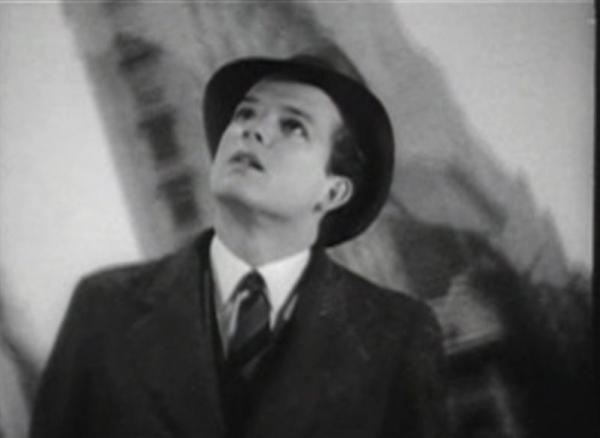

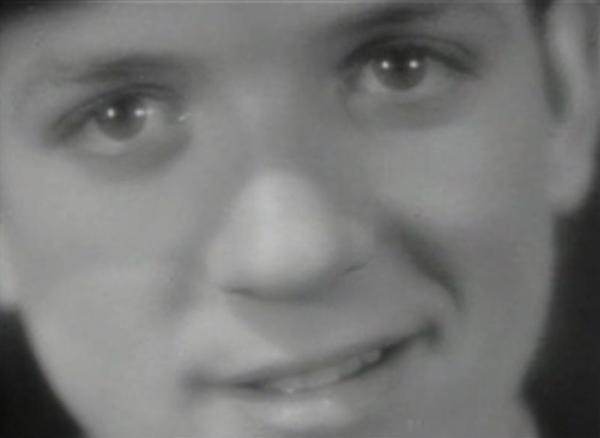




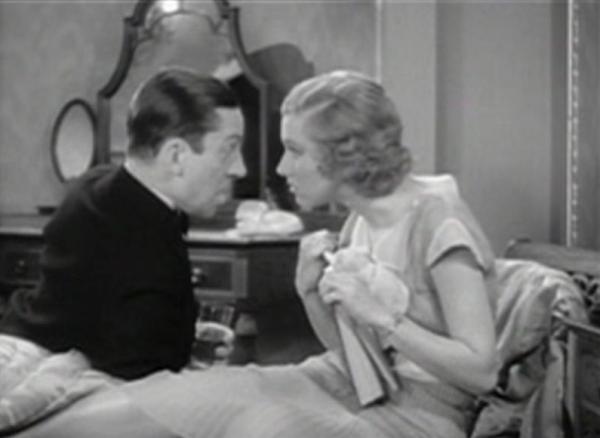
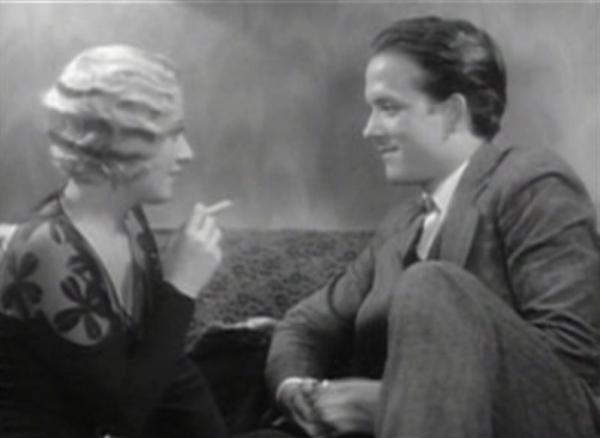


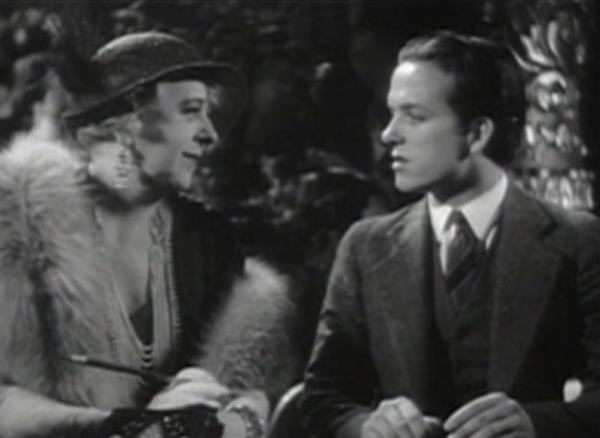


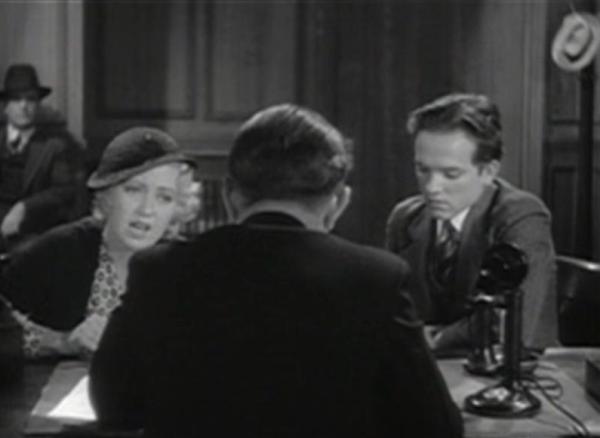
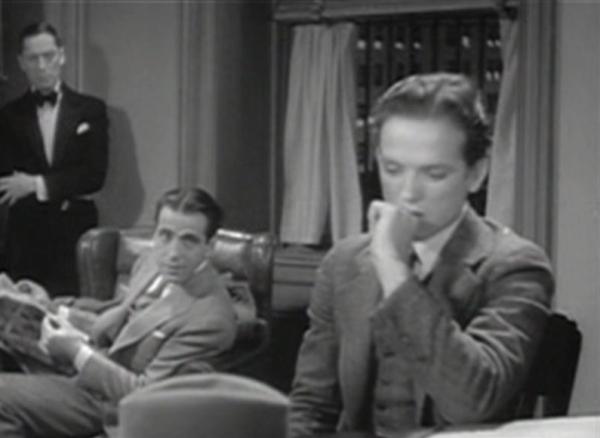



Cliff, I hadn’t realised quite how many familiar faces (and voices in the case of Dick Powell) featured in this one. You’ve done a great job in tracing them all and that speech by Grant Mitchell is quite something – I didn’t remember this film all that well now, except for Walter Catlett’s fast-talking conman, but your posting has brought it back vividly. Thanks for the link!
Thanks for reading, Judy. I really thought I was just putting on a Joan Blondell movie. I mean besides Ned Sparks being billed fourth, Jobyna Howland was third, in front of him. Then all of a sudden one face pops up, then another, another, Bogart, Talbot, whoa! That surely added to the fun here, but there was just so much atmosphere between the party and the two very different speakeasies that I would have been entertained no matter who was in it or how the story progressed. Thanks again!
By coincidence I’m currently reading “The Entertainer”, Margaret Talbot’s book about her father Lyle, and she discusses this film. Between your post and what she says about it, it sounds fascinating and one I’ll be on the lookout for. Sounds like another Pre-Code Warners gem.
It’s a blast, Kevin, hopefully TCM or Warner Archive help us out soon!
I’d read that just after Christmas, excellent book, but when I pulled it out to see if this movie was discussed I was reminded that there was no index. Major bummer for research.
Thanks for reading!